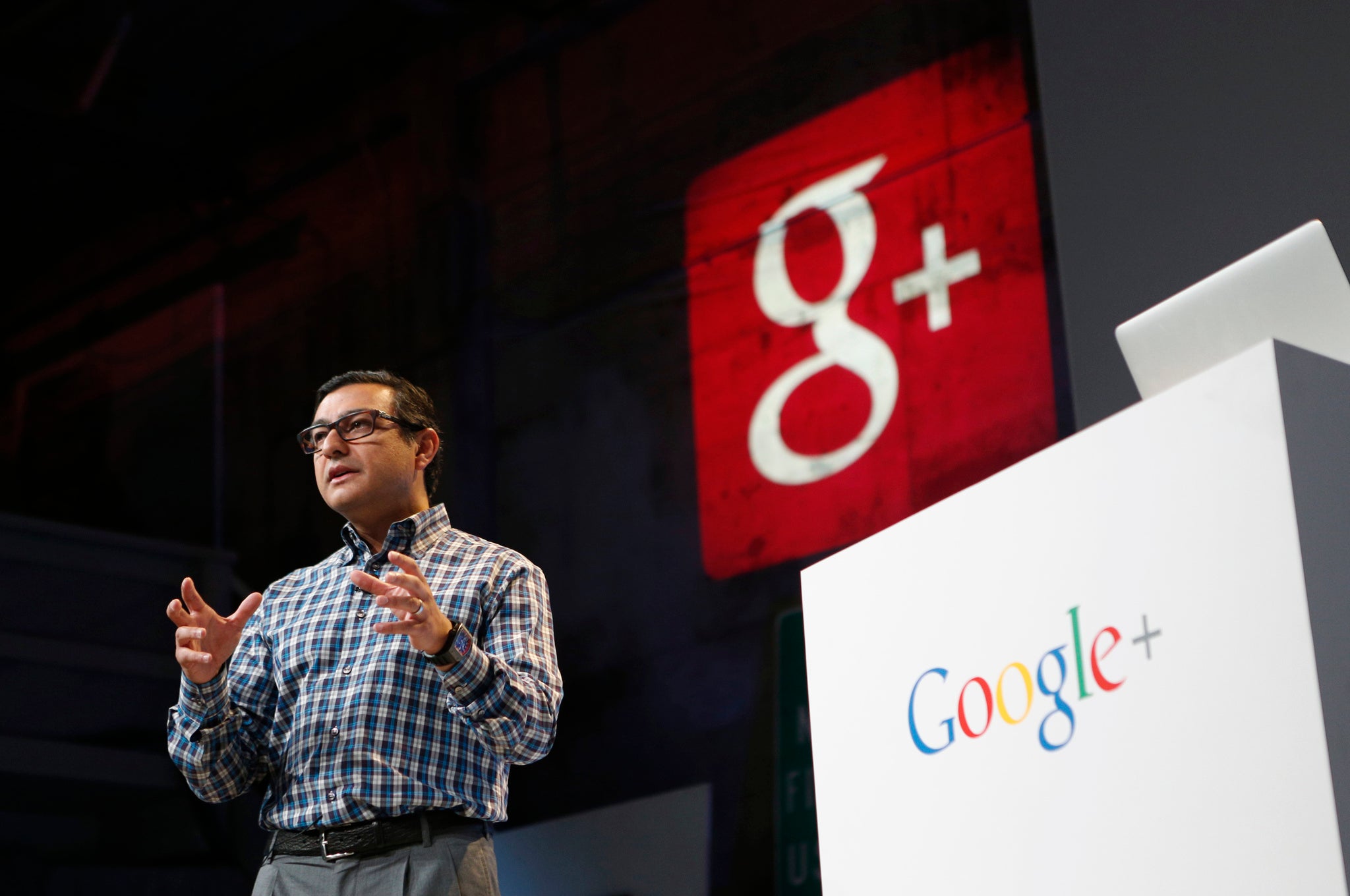Is Google giving up on its social network?
Google+ has long been a 'zombie' network sustained by other products, but the departure of a key executive leads to fresh speculation

Your support helps us to tell the story
From reproductive rights to climate change to Big Tech, The Independent is on the ground when the story is developing. Whether it's investigating the financials of Elon Musk's pro-Trump PAC or producing our latest documentary, 'The A Word', which shines a light on the American women fighting for reproductive rights, we know how important it is to parse out the facts from the messaging.
At such a critical moment in US history, we need reporters on the ground. Your donation allows us to keep sending journalists to speak to both sides of the story.
The Independent is trusted by Americans across the entire political spectrum. And unlike many other quality news outlets, we choose not to lock Americans out of our reporting and analysis with paywalls. We believe quality journalism should be available to everyone, paid for by those who can afford it.
Your support makes all the difference.The head of Google’s social networking efforts Vic Gundotra has announced that he will be leaving the company, prompting speculation that the internet giant is finally backing out of the social game.
Gundotra joined Google eight years and has been heading up Google+ for the last three. The social network that was his 'baby' launched back in 2011 with many hoping that its stratified approach to sharing (friends can be split into different circles with different permissions) might offer a more nuanced alternative to Facebook.
However, despite extremely fast adoption in the first couple of weeks, sustained user growth never materialised and when Google tried to bolster its numbers with an aggressive integration policy – for example, forcing YouTube users to sign up to the social network – the strategy backfired, angering many online.
Despite its troubles Google+ can still claim more than 540 million monthly active users (making it the second most active social network) but most of this is down to the popularity of Google’s other products - rather than the attractions of Plus itself.
From Gmail to Maps to YouTube, each of Google’s products comes with a half dozen friendly reminders to sign up to Google+, and this fits with the company’s avowed strategy that Plus is a “social layer” and an “identity service” rather than a social network.
A report from technology website TechCrunch today entitled "Google+ Is Walking Dead" claims that following Gundotra’s departure, Google+ will “no longer be considered a product, but a platform - essentially ending its competition with other social networks like Facebook and Twitter.”
Google has responded to the claims, denying that there will be any changes to the service (“Today’s news has no impact on our Google+ strategy,” said a spokesperson) but it’s still uncertain what the strategy for the social network ever was.
Clearly Google+ poses no threat to the likes of Facebook or even Twitter, but some analysts argue that this has never mattered. Contrary to the public’s perception of how much they’re sharing with Plus, Google is still using the service to aggregate vast amounts of data.
A report from market analysts Forrester last year highlighted this by measuring social networks so-called “database of affinity” – essentially a catalogue of what people like and what they don’t. The researchers came to the surprising conclusion that despite the lack of Likes, shares and photo albums, Google+ can beat Facebook in “[bringing] markets a usable database of affinity”.
The lesson? Even if Google+ is ‘downgraded’ in some way and it's team split up to focus on mobile apps (as TechCrunch claims), then the social network will still be around, collecting data. Google+ may be a zombie but the walking dead are still powerful - even if they're brainless.
Join our commenting forum
Join thought-provoking conversations, follow other Independent readers and see their replies
Comments